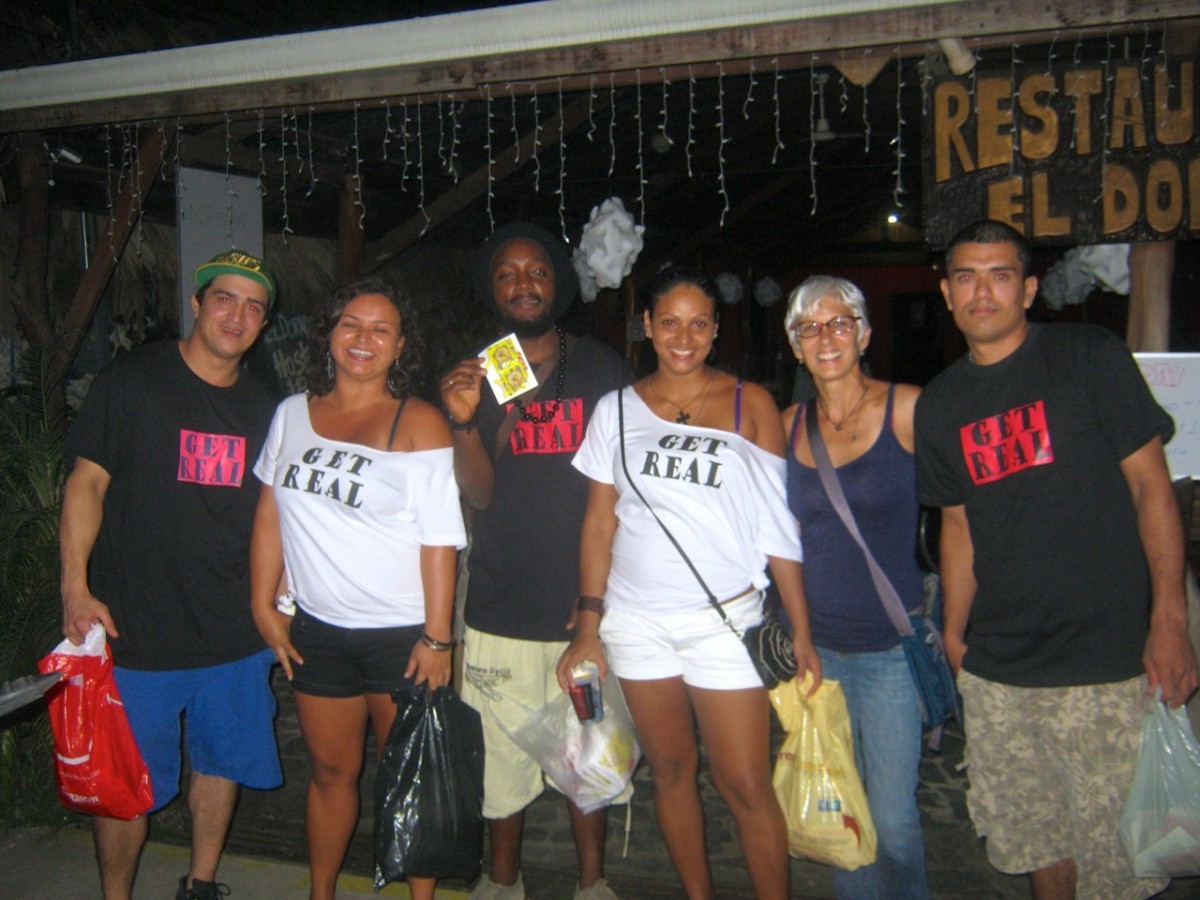
Susan Frohlick (second from right) teamed up with community volunteers Michael Araya Cordoba, Cristian Malcon, Silvia Ortega and Taylor Araya Cardoba, along with field research assistant Carolina Meneses, on World AIDS Day in Puerto Viejo de Talamanca, Limon, Costa Rica. The group distributed 600 free condoms and leaflets with information about free community resources.
Empowering locals in Costa Rica: How tourism impacts sexual health
WHO: Susan Frohlick, associate professor in anthropology and women’s and gender studies.
WHAT: Frohlick researches how international tourism affects the lives of residents living in rural towns in the Caribbean Costa Rica.
HOW IT STARTED: “In 2012 I teamed up with a University of Costa Rica researcher Dr. Lopez-Ruiz and student Carolina Meneses to conduct a pilot study on sexual health,” says Frohlick. “One of our primary goals was to understand meanings and practices of sexual health from the perspectives of local people. To conduct the study we were assisted by a public health nurse who runs a small publicly funded but underutilized sexual and reproductive health clinic. We also sought to engage with teens and young adults because this is an age group widely affected by tourism through sexual relations with tourists. We were inspired by the enthusiasm of several local youth who initiated the idea of a condom distribution event where they distributed free condoms along with information about the free clinic on World AIDS Day.”
THE IMPACT: “This outreach activity reached approximately 300 people in a community where sex education has been silenced by the government and the Catholic Church,” she notes.
WHY IT MATTERS: “A stand out moment for me occurred during the event [when I saw] the topic of sexual health enter into a public domain in a new and visible way that was significant to the young people we had hoped to reach with the project,” says Frohlick. “For me, this was a measure of success because it indicated that our research was in line with issues already on the minds of local people and that we can move forward building on the youths’ interest in social change at the community level.”
FUNDERS: The International Development Research Centre (IDRC); the Association of Universities and Colleges of Canada (AUCC); Canada-Latin America and the Caribbean Research Exchange Grants (LACREG) Program; Faculty of Arts, University of Manitoba; Women’s and Gender Studies Program, University of Manitoba; and the Institute of Social Research, the University of Costa Rica
LEARN MORE






